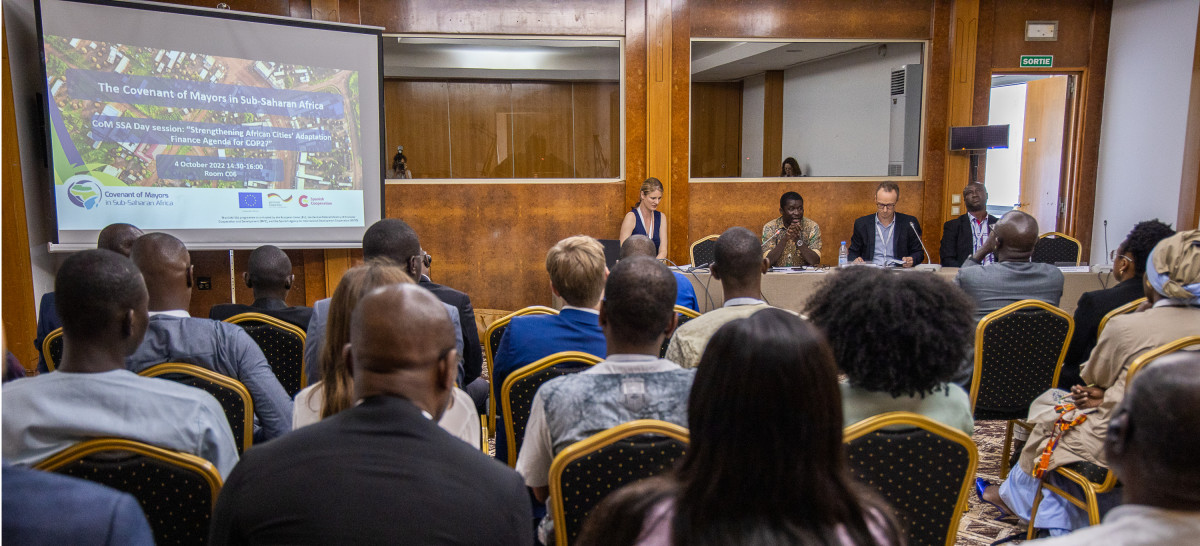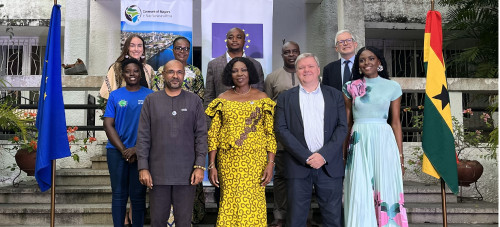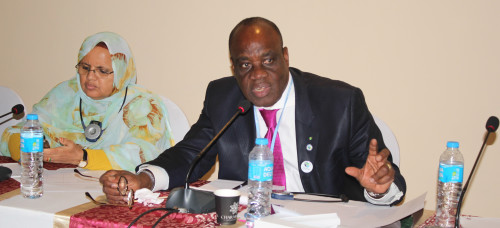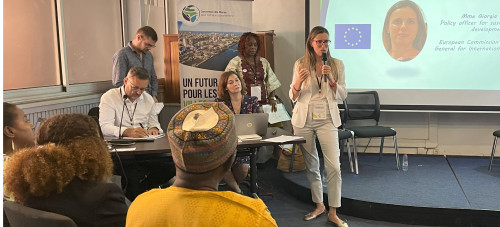Adaptation finance is critical to building more climate resilient cities in Africa
Published: 21 Oct 2022
Climate Finance
Events

At CoM SSA Day during the week for Sustainable Mobility and Climate, the Secretariat hosted a session focused on climate finance for adaptation. At COP26 new records in resource mobilisation for adaptation, funds were reached, and a two-year work programme on the global goal for adaptation was launched. Small-medium African cities, however, still continue to face major technical and institutional capacity constraints in accessing climate finance, particularly for adaptation. Organisations like CoM SSA are working to close that gap and unlock climate finance at the local level.
The Covenant of Mayors in Sub-Saharan Africa (CoM SSA) through its co-implementing partner the Agencia Española de Cooperación Internacional para el Desarrollo (AECID), hosted over 300 participants from local and national government, civil society, and the private sector at the CoM SSA Day event held during the week for Sustainable Mobility and Climate #SMDC202 in Dakar, Senegal on 4 October. #SMDC2022 was co-hosted by CODATU, CETUD and Climate Chance. During this day-long event, we hosted a session titled “Strengthening African Cities’ Adaptation Finance Agenda for COP27” where local government leaders and financiers discussed challenges and opportunities faced by small-medium cities in accessing finance.
Climate finance continues to be dominated by support for mitigation over adaptation. Recent climate finance statistics show that only 20-25% of all committed concessional climate finance from developed to developing countries is dedicated to adaptation. This is particularly concerning for African cities, which face some of the most devastating effects of climate change despite contributing minimally to global carbon emissions. This session focused on financing opportunities that are now available to cities post COP26, the challenges faced by small-medium cities in accessing finance, ways in which these challenges could be solved in the lead to COP27, and the identification of actions and recommendations that need to be taken forward at COP27.
During the session, a member of the CoM SSA Regional Mayors Forum, Dr Manuel de Araújo, Mayor of Quelimane Municipal Council in Mozambique, highlighted the challenges local government face in accessing climate finance: “we are lacking the bridge between the local governments and the financial sector, we need to educate and understand each other in order to move in the same direction.” Careful climate planning at the local level must be connected to finance. CoM SSA signatories develop Sustainable Energy Access and Climate Action Plans that help cities to make their climate actions “project ready” thereby increasing the chances of mobilising finance for their implementation.

Although local governments often lack direct access to financiers there are funding opportunities available that cater specifically to local governments.
Samuel Lefèvre, Senior Task Team Leader at the Urban Management Unit in Agence Française de Développement (AFD), presented on the organisation’s Cities and Climate in Sub-Saharan Africa (CICLIA) facility. The CICLIA facility, initiated by the European Union, SECO and AFD in 2017, aims to provide support to cities in sub-Saharan Africa for the preparation of resilient, low-carbon urban projects by financing urban strategies, feasibility studies and technical assistance across sectors. the region, for example, in Kampala (Uganda) and Cape Town (South Africa) where the energy sector is the focus.
CoM SSA recently launched a self-guided climate finance course which aims to close the gap between financiers and local governments in Africa. The course, available free of charge to all, is designed to build the capacity of cities and subnational governments, to understand and access finance that is relevant for their climate actions. It is available in English and French, in an online and facilitated format.
Watch the session recording here.





